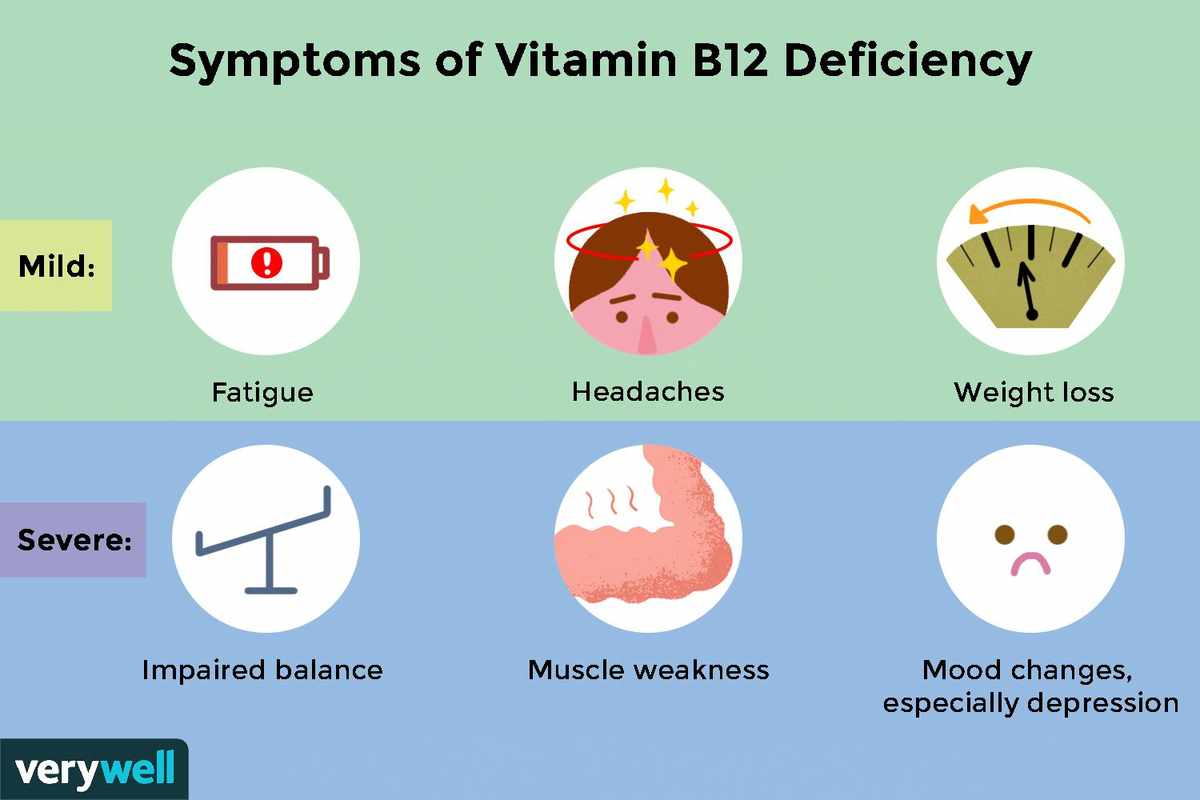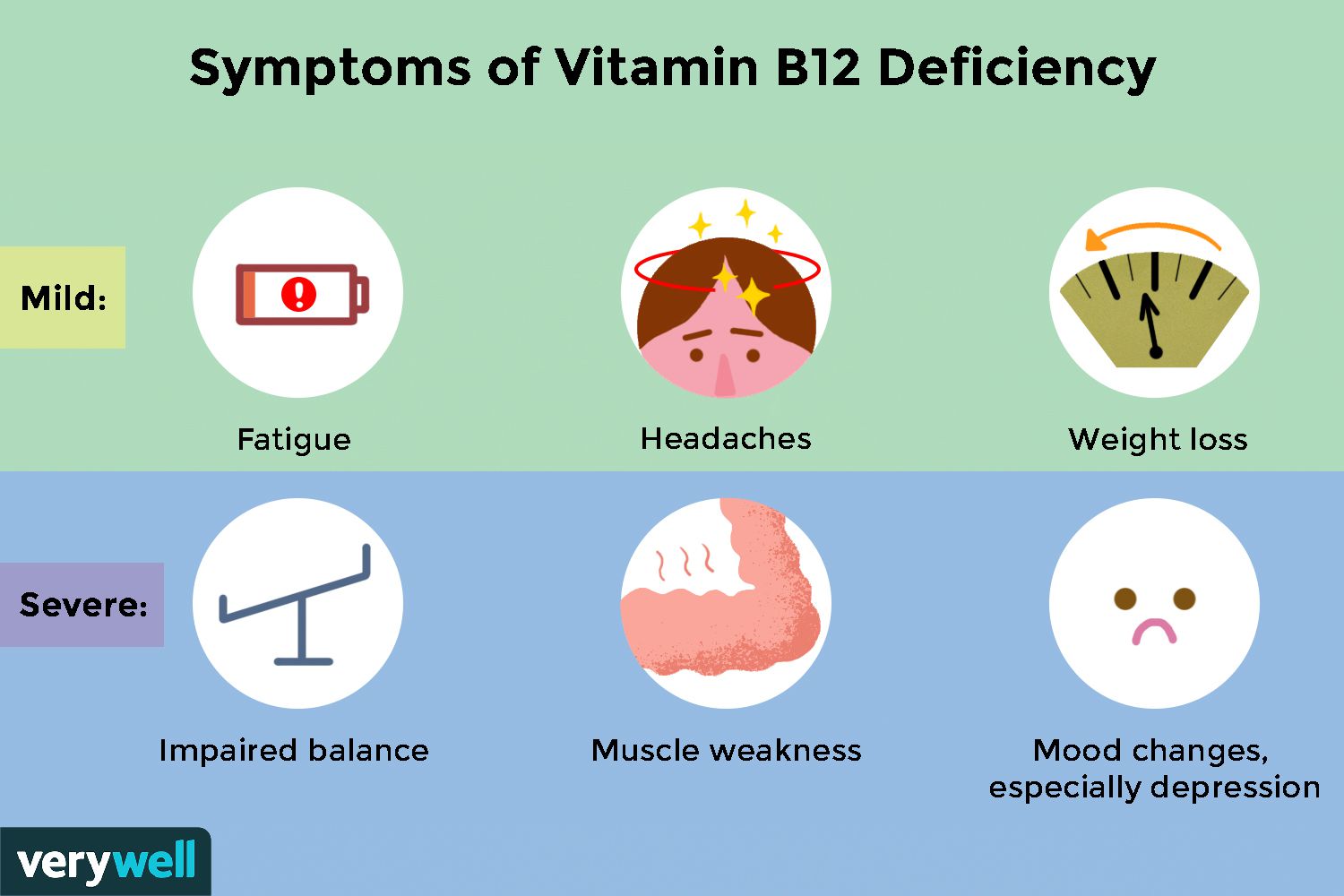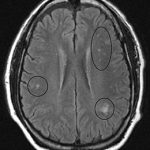A deficiency of vitamin B12 can have far-reaching consequences for your overall health, from causing fatigue and weakness to affecting your nervous system and even increasing the risk of certain diseases.
The Importance of Vitamin B12
Vitamin B12 is an essential nutrient that plays a crucial role in many bodily functions. It’s necessary for the production of red blood cells, nerve function, and DNA synthesis. Without enough vitamin B12, your body may not be able to function properly.
What Happens When You Don’t Have Enough Vitamin B12
When there is a deficiency of vitamin B12, it can cause a range of problems including:
- Fatigue and weakness: A lack of vitamin B12 can cause fatigue, weakness, and shortness of breath.
- Numbness or tingling in the hands and feet: Vitamin B12 deficiency can cause numbness or tingling sensations in the hands and feet, which can be uncomfortable and even debilitating.
In this blog post, we’ll explore what causes a deficiency of vitamin B12 and what happens when you don’t have enough. We’ll also discuss how to prevent and treat a deficiency, as well as provide tips for maintaining optimal health.

A deficiency of vitamin B12 can have far-reaching consequences for your overall health, from causing fatigue and weakness to affecting your nervous system and even increasing the risk of certain diseases.
The Importance of Vitamin B12
Vitamin B12 is an essential nutrient that plays a crucial role in many bodily functions. It’s necessary for the production of red blood cells, nerve function, and DNA synthesis. Without enough vitamin B12, your body may not be able to function properly.
What Happens When You Don’t Have Enough Vitamin B12
When there is a deficiency of vitamin B12, it can cause a range of problems including:
- Fatigue and weakness: A lack of vitamin B12 can cause fatigue, weakness, and shortness of breath.
- Numbness or tingling in the hands and feet: Vitamin B12 deficiency can cause numbness or tingling sensations in the hands and feet, which can be uncomfortable and even debilitating.
- Mood changes: A deficiency of vitamin B12 has been linked to depression, anxiety, and mood swings. This is because the vitamin plays a crucial role in regulating neurotransmitters that affect our mood.
- Digestive problems: Vitamin B12 deficiency can cause digestive issues such as diarrhea, nausea, and abdominal pain.
- Increased risk of diseases: A deficiency of vitamin B12 has been linked to an increased risk of certain diseases, including heart disease, stroke, and cancer.
Vitamin B12 deficiency can also affect the eyes, causing blurred vision, double vision, or even loss of peripheral vision. In severe cases, it can lead to optic neuritis, a condition that can cause vision loss or blindness.
It’s essential to note that vitamin B12 deficiency is more common than you might think. According to the National Institutes of Health (NIH), approximately 1 in 4 people over the age of 50 have some degree of vitamin B12 deficiency. This highlights the importance of monitoring your levels and taking steps to prevent or treat a deficiency if necessary.
To learn more about vitamin B12 deficiency, including how to prevent and treat it, be sure to check out the Vitamin B12 Deficiency article on Healthline. You can also consult with a healthcare professional or registered dietitian for personalized advice.
In our next post, we’ll delve into the causes of vitamin B12 deficiency and explore what you can do to prevent it from happening in the first place.
Get Expert Advice on Vitamin B12 Deficiency
Don’t hesitate to consult with a medical professional for personalized guidance.
Consult a Medical ExpertIn our previous discussion, we explored the importance of vitamin B12 and what happens when there is a deficiency. We covered how a lack of this essential nutrient can cause fatigue and weakness, as well as numbness or tingling sensations in the hands and feet.
Summary
To recap, a deficiency of vitamin B12 can have significant consequences for your overall health. The key points to remember are:
- A lack of vitamin B12 can cause fatigue, weakness, and shortness of breath.
- Vitamin B12 deficiency can also cause numbness or tingling sensations in the hands and feet.
In order to maintain optimal health, it’s essential to understand what causes a deficiency of vitamin B12. In this blog post, we’ll explore some of the common causes of a deficiency, including:
Causes of Vitamin B12 Deficiency
Vitamin B12 deficiency can be caused by several factors, including:
- A diet that is lacking in vitamin B12-rich foods such as meat, fish, and dairy products.
- A condition called pernicious anemia, which occurs when the body cannot produce intrinsic factor, a protein necessary for vitamin B12 absorption.
- A deficiency of stomach acid, which can also affect vitamin B12 absorption.
In order to prevent and treat a deficiency of vitamin B12, it’s essential to understand these causes. By making informed lifestyle choices and taking steps to address any underlying issues, you can maintain optimal health and reduce the risk of developing a deficiency.
Conclusion
In conclusion, a deficiency of vitamin B12 is a serious issue that can have significant consequences for your overall health. By understanding what causes a deficiency and taking steps to prevent and treat it, you can maintain optimal health and reduce the risk of developing related problems. Remember, it’s essential to prioritize your health by making informed lifestyle choices and seeking medical attention if you experience any symptoms.
A Typical Resting Heart Rate for a Normal Individual is Around: Did you know that your resting heart rate can reveal a lot about your overall health? Learn what constitutes a normal resting heart rate and how to use it as a tool for tracking your physical well-being.
The Ultimate BMI Chart for Tall Men: As a tall man, maintaining a healthy weight can be challenging. Our ultimate BMI chart for tall men provides a simple and accurate way to track your progress and ensure you’re at a healthy weight.




